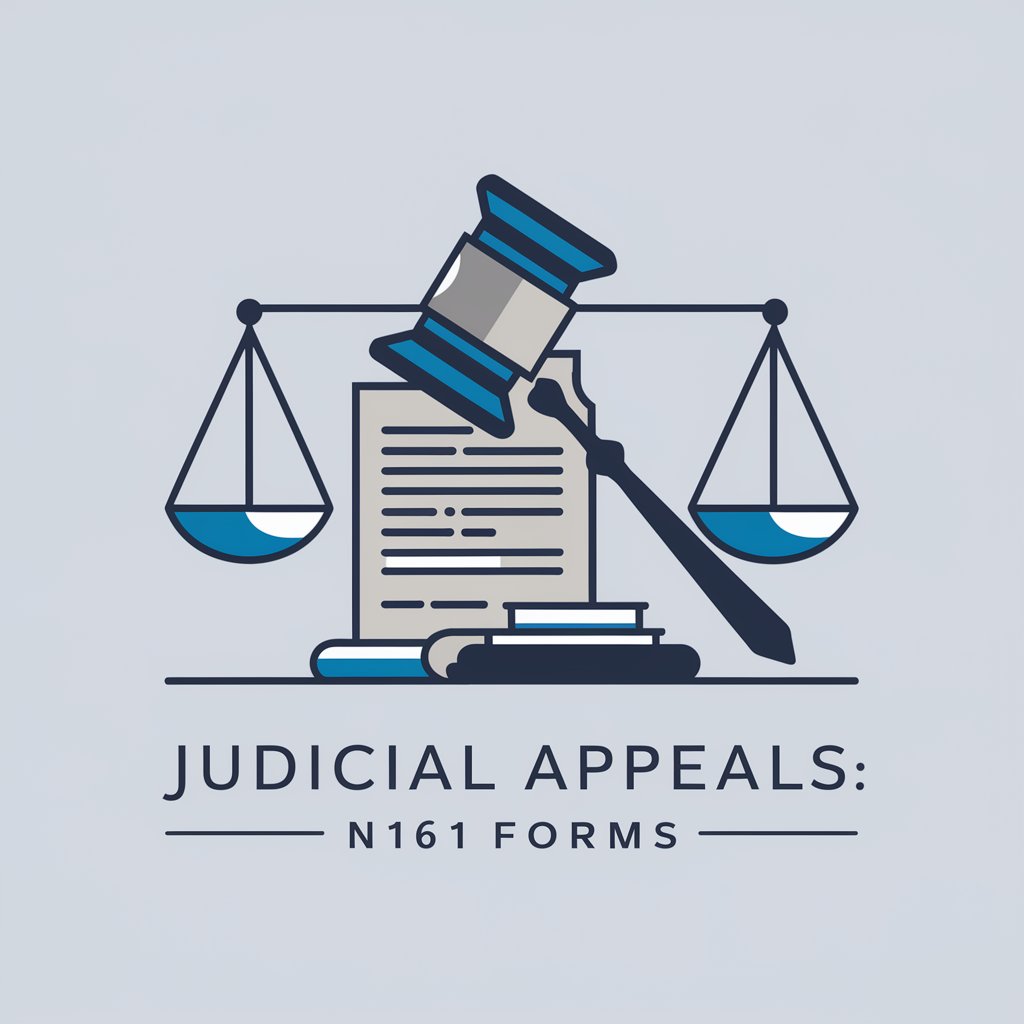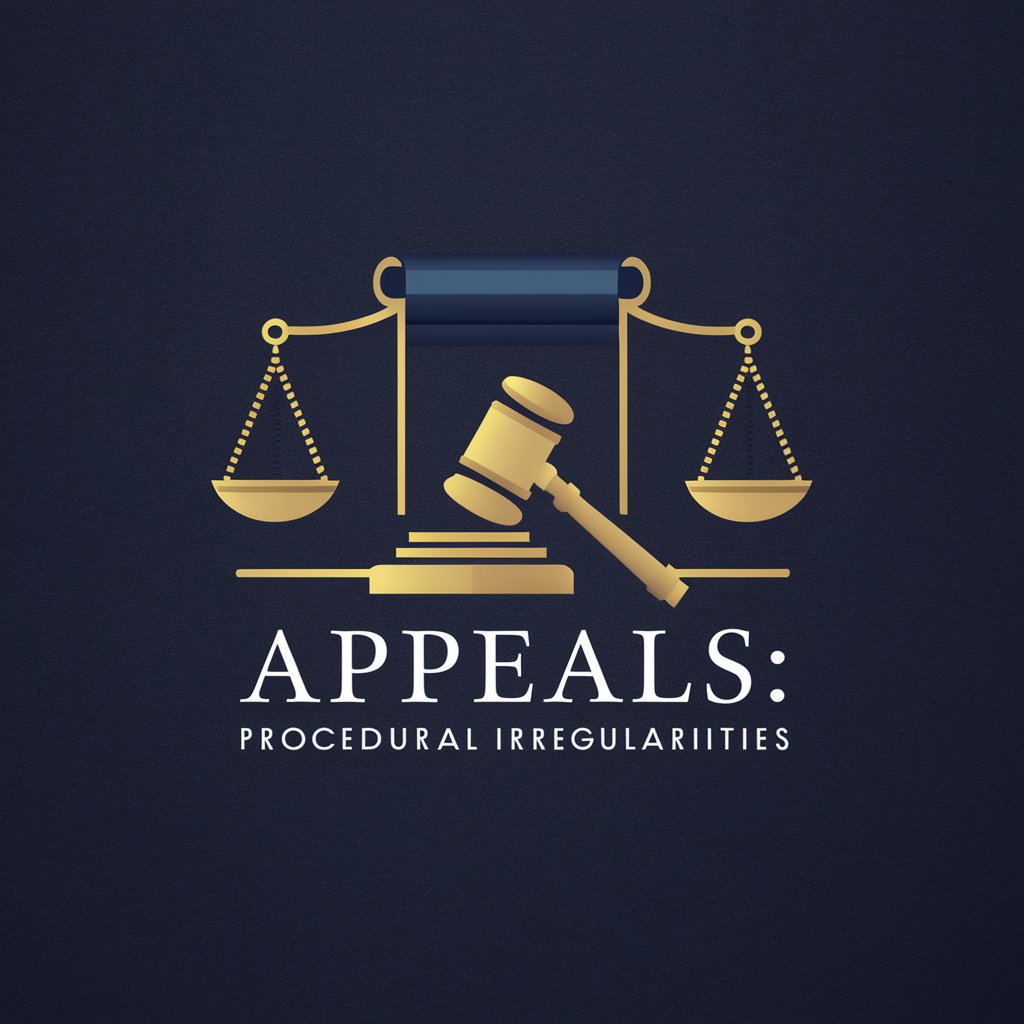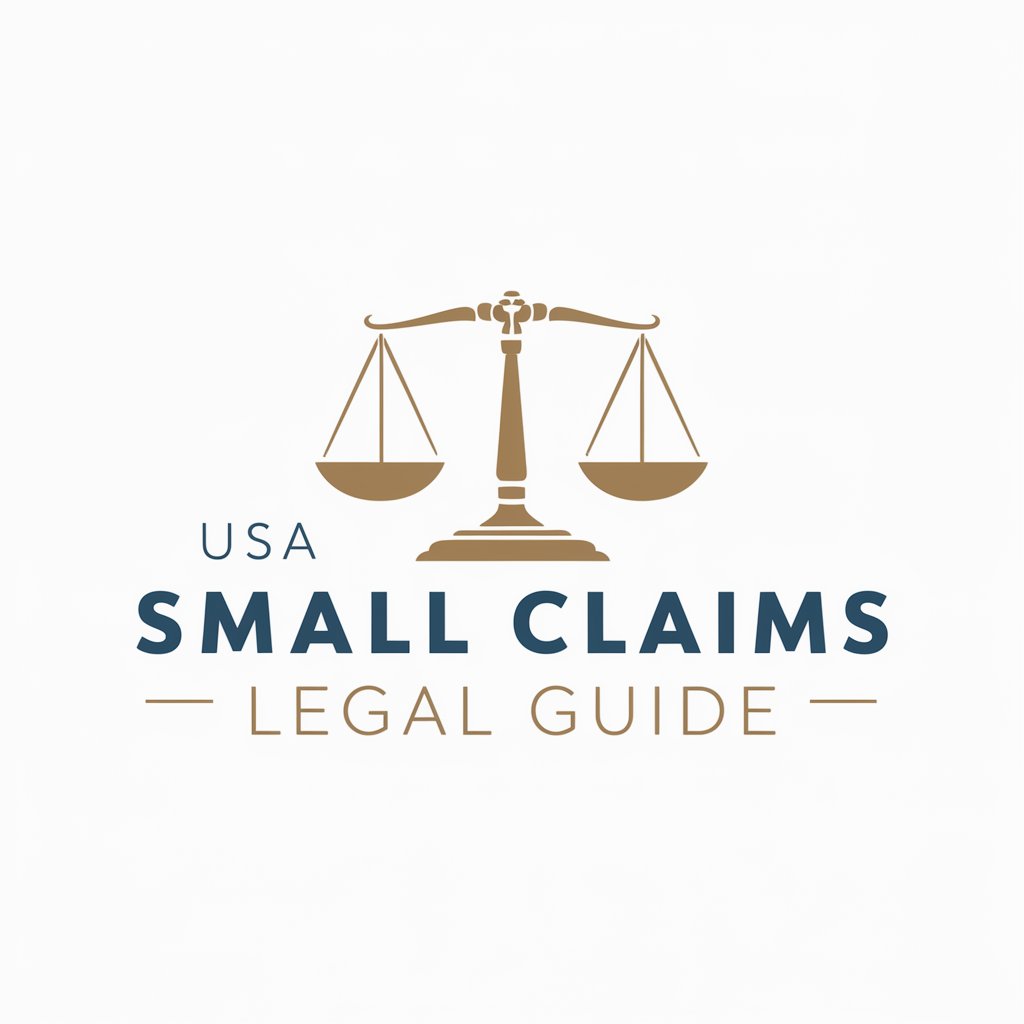
Judicial Appeals: N161 Forms - N161 Form Guidance

Welcome! How can I assist with your N161 appeal form today?
Streamlining legal appeals with AI-powered support
How do I fill out section A of the N161 form?
What are the time limits for lodging an appeal?
Can you explain the grounds for appeal in the N161 process?
What information is required in the statement of truth?
Get Embed Code
Introduction to Judicial Appeals: N161 Forms
The N161 form is a crucial document used within the UK legal system for initiating appeals against decisions made in the County Court or High Court. Its primary purpose is to formalize the process of challenging court orders or judgments that parties believe were made in error, ensuring a structured avenue for review. An appeal might be sought on various grounds, including procedural irregularities, misinterpretation of the law, or new evidence coming to light. For instance, if a lower court's decision is perceived as unjust due to overlooking crucial evidence, the aggrieved party can use the N161 form to initiate an appeal, seeking a re-evaluation of the case under the scrutiny of a higher judicial authority. Powered by ChatGPT-4o。

Main Functions of Judicial Appeals: N161 Forms
Facilitating Appeals
Example
If a party disagrees with a County Court's ruling due to a procedural mistake, they can file an N161 form to escalate the matter to the High Court.
Scenario
This function is crucial in ensuring that legal errors or oversights can be corrected, thus upholding the justice system's integrity.
Extending Time for Appeal
Example
A party realizes the grounds for an appeal exist but has missed the standard filing deadline. Using the N161 form, they can request an extension, providing reasons for the delay and the steps taken prior to making the application .
Scenario
This ensures that meritorious appeals are not barred due to strict adherence to procedural timelines, allowing for flexibility under reasonable circumstances.
Standardizing Appeal Documentation
Example
The N161 form requires specific documents to be filed, including copies of the order under appeal and the grounds for the appeal .
Scenario
By standardizing what needs to be submitted, it streamlines the appeals process, making it more efficient and understandable for all parties involved.
Ideal Users of Judicial Appeals: N161 Forms Services
Legal Professionals
Lawyers and legal advisors benefit from using N161 forms to represent clients seeking to challenge court decisions. Their expertise enables them to navigate the complex appeal process effectively.
Self-Represented Litigants
Individuals who choose to represent themselves in legal matters can use the N161 form to file an appeal. The form's structured format and the guidance provided in related documents help demystify the legal process for non-professionals.
Legal Scholars and Students
This group uses N161 forms for academic purposes, such as mock trials or research into the appellate process, benefiting from understanding the practical applications of legal theory.

How to Use Judicial Appeals: N161 Forms
1
Visit yeschat.ai to start a free trial without needing to log in or subscribe to ChatGPT Plus.
2
Select the N161 Forms option to begin creating your appeal; ensure you have all necessary documents related to your case, like the judgment or order being appealed.
3
Follow the guided prompts to fill out each section of the N161 form accurately, providing details of the decision you are appealing, grounds for appeal, and desired outcome.
4
Review and verify the information entered to ensure accuracy and completeness. Attach any supporting documents or evidence required for your appeal.
5
Submit the completed form online through the portal. Keep a copy for your records and wait for notification of the appeal's progress.
Try other advanced and practical GPTs
Healthcare Appeals Navigator
Streamlining Healthcare Appeals with AI

Bond Appeal Assistant
Streamlining Dental Insurance Appeals with AI

Bet Master
Empowering Your Bets with AI

Instinct Appeal Marketing
Harnessing Human Instincts for Ethical Marketing

Ask a BC Assessment Appeals Expert
Empowering BC property appeals with AI

Appel
Revolutionizing Product Introductions with AI

Judicial Appeals: Procedural Irregularities
AI-powered guide to challenging procedural errors

Appeal UK Parking Tickets
Automating your parking appeal process

Judicial Appeals: Grounds
Navigate appeal complexities with AI

Judicial Appeals: Errors of Law
AI-powered Legal Appeal Assistant

Scotty the Sprout Appeal Scribe Bot
Automate your appeal, maximize your impact.

Dansk sekretær med avanceret funktionalitet
Elevating Danish Professional and Academic Efficiency

Frequently Asked Questions about Judicial Appeals: N161 Forms
What is the N161 form used for?
The N161 form is used for lodging appeals against decisions made in the County Court or High Court in the UK, allowing parties to challenge the outcome of a case on various grounds, including errors in law, fact, or procedure.
What details are required on the N161 form?
The form requires information about the appellant, the original case details, the decision being appealed, grounds for the appeal, and the orders sought from the appellate court. Supporting documents and evidence must also be attached.
What are the time limits for submitting an N161 appeal?
Time limits vary based on the type of decision being appealed. Generally, an appeal must be filed within 21 days after the decision of the lower court was served, but this can vary, so checking the specific rules related to your case is important.
Can I file an N161 appeal form online?
Yes, the N161 appeal form can be submitted online through the court’s digital portal, streamlining the process and ensuring timely submission.
How does Judicial Appeals: N161 Forms assist in the appeal process?
This tool provides guidance on completing the N161 form, clarifying legal terms, procedures, and time limits. It helps users understand the requirements for a successful appeal and ensures that all necessary information and documentation are provided.





